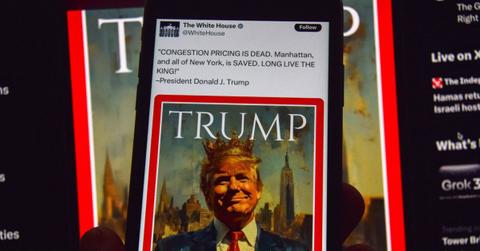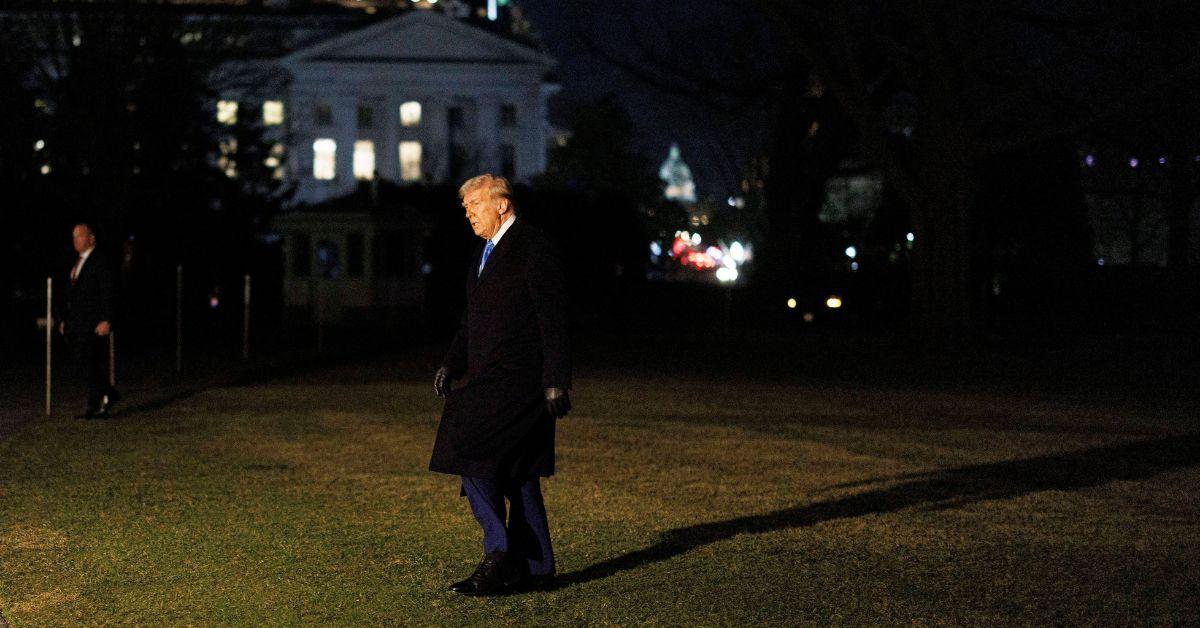Donald Trump Is Now Calling Himself a King, Which Is Definitely a Good Sign
Donald Trump's "long live the king" post has some wondering what the president meant.
Published Feb. 20 2025, 11:37 a.m. ET

Anyone who went to school in the United States knows that America was founded, at least in part, because its people did not want to be subject to the whims of a king who could make decisions on their behalf. America has, historically, been pretty anti-monarchy.
Now, though, after President Trump used the phrase "long live the king" at the end of a social media post announcing his move to end congestion pricing in New York City, many want to know whether we're still firmly against monarchy in the United States. Here's what we know about why Trump said that.

Why did Donald Trump say "long live the king"?
While he didn't offer an explanation, Trump posted this message on Truth Social: "CONGESTION PRICING IS DEAD! Manhattan, and all of New York, is SAVED. LONG LIVE THE KING!"
Trump didn't say who he was referring to, but given that the statement came at the end of a policy announcement, it feels fairly safe to assume that Trump was referring to himself as the king.
Trump has certainly approached the presidency as if he were a monarch, issuing executive orders and enlisting Elon Musk to gut parts of the federal government, all without any approval from Congress. America's governmental system was designed to include checks and balances that ensured that no one branch would consolidate too much power. It seems pretty clear, though, that Trump is trying to accumulate as much power as he can.
When he says "long live the king," then, it's possible that he's just trolling. He obviously knows that there are plenty on the left who will see words like that and freak out, pointing out how much America has historically hated monarchs. It's also possible, though, that he's completely serious about his own governing philosophy and doesn't believe that either Congress or the courts should have any say in what he does as president.
Trump faced pretty major backlash for the comment.
Even as other right-wing X (formerly Twitter) accounts began boosting the post, including some affiliated with the White House, plenty of others pointed out that Trump's suggestion that he was a monarch is no laughing matter. We didn't fight a whole revolution for nothing, and plenty of people would like to think that there are still many in America who have some attachment to the idea of this country as a democracy.
However, it does seem that there is at least a fraction of the country that wouldn't mind having a king who can control all the levers of government. It remains to be seen whether Trump will actually be that or if people will be happy with the results of his massive consolidation of power.
When Trump calls himself a king, though, it's probably wise to assume that at least part of him is serious. He may be doing some light trolling because he knows it will bother some people, but that doesn't mean he's not also serious.